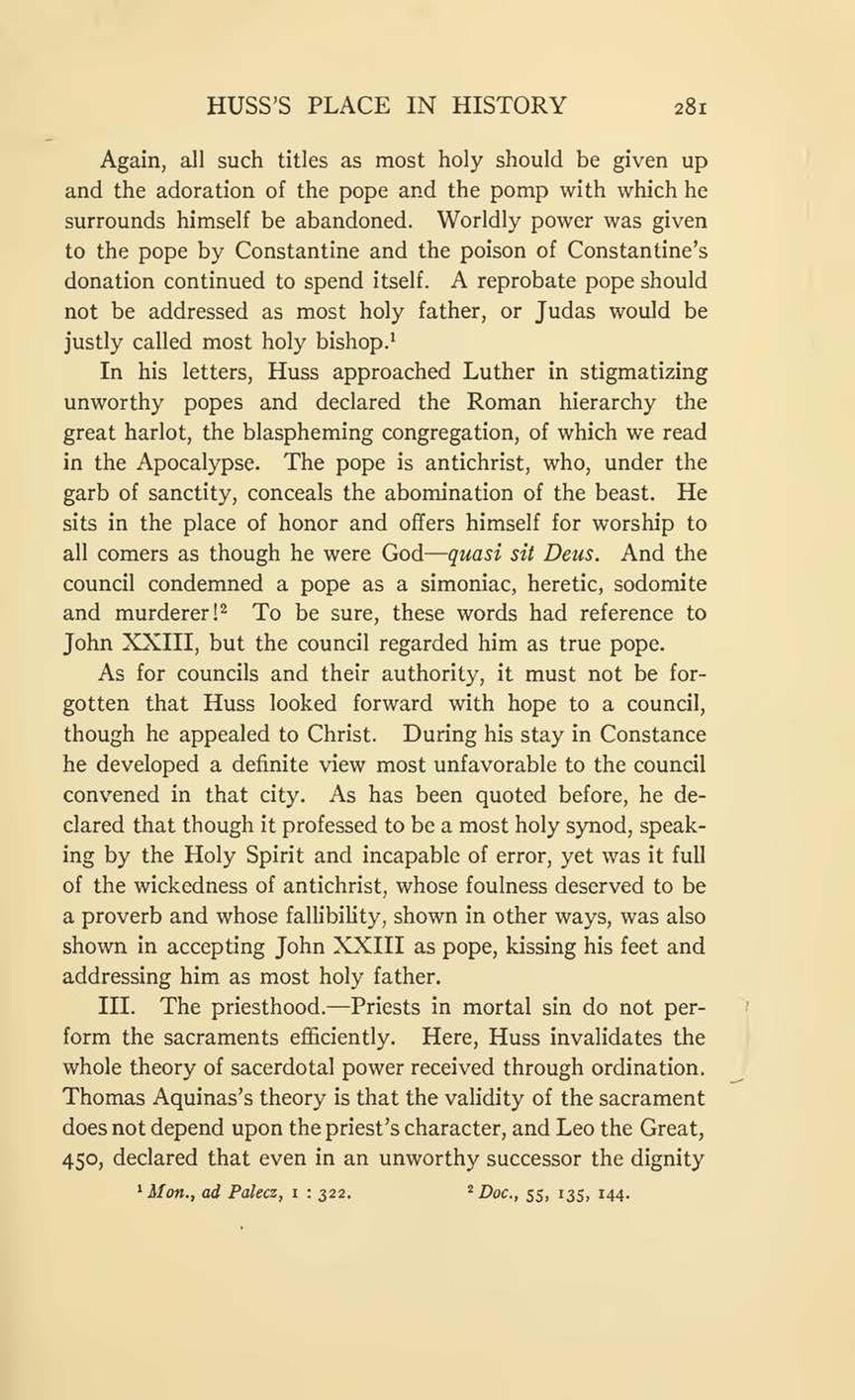Again, all such titles as most holy should be given up and the adoration of the pope and the pomp with which he surrounds himself be abandoned. Worldly power was given to the pope by Constantine and the poison of Constantine’s donation continued to spend itself. A reprobate pope should not be addressed as most holy father, or Judas would be justly called most holy bishop.[1]
In his letters, Huss approached Luther in stigmatizing unworthy popes and declared the Roman hierarchy the great harlot, the blaspheming congregation, of which we read in the Apocalypse. The pope is antichrist, who, under the garb of sanctity, conceals the abomination of the beast. He sits in the place of honor and offers himself for worship to all comers as though he were God—quasi sit Deus. And the council condemned a pope as a simoniac, heretic, sodomite and murderer![2] To be sure, these words had reference to John XXIII, but the council regarded him as true pope.
As for councils and their authority, it must not be forgotten that Huss looked forward with hope to a council, though he appealed to Christ. During his stay in Constance he developed a definite view most unfavorable to the council convened in that city. As has been quoted before, he declared that though it professed to be a most holy synod, speaking by the Holy Spirit and incapable of error, yet was it full of the wickedness of antichrist, whose foulness deserved to be a proverb and whose fallibility, shown in other ways, was also shown in accepting John XXIII as pope, kissing his feet and addressing him as most holy father.
III. The priesthood.—Priests in mortal sin do not perform the sacraments efficiently. Here, Huss invalidates the whole theory of sacerdotal power received through ordination. Thomas Aquinas’s theory is that the validity of the sacrament does not depend upon the priest’s character, and Leo the Great, 450, declared that even in an unworthy successor the dignity
